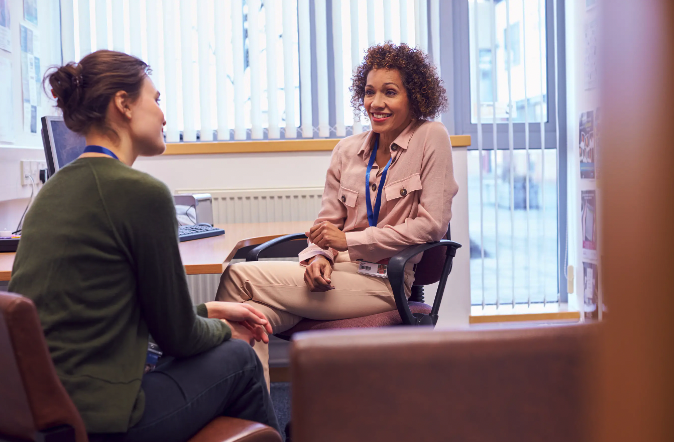

SA youth homeless reunification program expands to Canberra

A successful South Australian youth reunification program which has helped close to 2000 families stay together is expanding to Canberra.
Uniting Communities has delivered the successful Ruby’s Reunification Program in South Australia for 28 years. The program helps young people avoid homelessness by combining counselling for all members of a family and a safe place to stay, recognising that people want to retain family relationships even when there’s conflict.
Longitudinal data shows that, on average, 74 per cent of young people who accessed the service did not return to the homelessness sector.
Uniting Communities’ Community Services Executive Manager Robyn Sutherland said international reviews had found Ruby’s to be the only program worldwide which combined family counselling and a residential component, which included early intervention to keep family relationships on track.
“Our unique approach is to bring all members of the family together, and our understanding that family members love each other and want to retain a relationship even when it’s really hard and there is lots of conflict,” Ms Sutherland said.
“We’ve focussed on keeping families together as long as it is safe for the young person for close to 30 years. If a young person can no longer remain at home, we still support the family so that they can maintain a relationship and help them rebuild, while we ensure the young person has a safe place to stay.
“We know adolescence can be hard and parenting can be very difficult, but working with the whole family allows us to support all members of the family at a challenging time.”
Ruby’s is funded by State Government agency South Australian Housing Authority (SAHA), with Uniting Communities working closely with the housing provider to support young people and avoid the need for them to access homelessness services into their adult lives.
Minister for Human Services Nat Cook said she was proud to see South Australia once again show national and international leadership on addressing housing and homelessness.
“I congratulate Uniting Communities on their hard work and Ruby’s expansion and acknowledge the financial support from the South Australian Government that helps to make this possible,” Ms Cook said.
SAHA Head of the Office for Homelessness Sector Integration Ian Cox said the organisation was incredibly proud to see a program that it had supported for so long to be picked up by another jurisdiction.
“The data shows that this program consistently keeps a high number of young people out of the homelessness sector,” Mr Cox said.
“This is additionally powerful when research shows us that people who experience homelessness when they are young, are very likely to experience episodes of homelessness throughout their lives. The work that Ruby’s does thus has ripple effects throughout a person’s life.’
Surveys have found that close to one in 20 young people aged between 15 and 19 in South Australia experienced homelessness for the first time during the coronavirus pandemic, with the state’s rate higher than the national average.
Ms Sutherland said programs such as Ruby’s, which focussed on early intervention, had been identified as a holistic solution which reduces conflict, to ensure young people don’t end up on the streets.
She said that due to national demand for a solution to reducing homelessness, Ruby’s roll-out in Canberra would be the first time the model was to be used outside South Australia.
Ruby’s Senior Manager, Cheryl Lierton, said the Canberra program would be provided in the ACT as part of the wider Safe & Connected Youth Project. Conflict Resolution Service (CRS) in partnership with Marymead, which will deliver the service. The Ruby’s component of the program will be based at a six-bedroom house in the south of Canberra that is staffed with therapeutic case workers, counsellors, youth workers and mediators. Staff from South Australia have travelled to Canberra to deliver training and will continue to share knowledge and experience with the Canberra team.
“This kind of relationship is surprisingly unusual in the Community Services sector. I know of similar licensing arrangements with programs from overseas, but less so with programs from interstate,” Ms Lierton said.
“Uniting Communities in South Australia is excited to be supporting the Canberra service through a licencing arrangement. This means that the ACT team has a huge head start to achieving successful outcomes with young people and their families.”
The Canberra house opened in June and has begun supporting young people and their families entering the program. The successful opening of the Ruby’s Canberra house is testament to the hard work and belief in the program by those within Uniting Communities and the South Australian Housing Authority who have resourced and invested in the model over nearly 30 years.”
CRS CEO Melissa Haley said the ACT Government’s commitment to invest in not only a service that would provide much-needed therapeutic support but also provide a fit-for-purpose residential house to provide respite to children, young people, and their families was most welcome.
“Being the first of its kind for Canberra, we are pleased with the commitment shown by local businesses, who are already on board to support the ongoing development of the program, which proves the importance of such a program in Canberra,” Ms Haley said.
Uniting Communities is also in talks with an organisation in Western Australia which is considering implementing Ruby’s, which could lead to the reunification program being rolled out nationally.
For more information about Ruby’s Reunification Program in South Australia, click here.
For more information about Ruby’s Reunification Program as a licensed model for interstate, click here.
Recent News
- Which charity would your favourite furry friend support? Dig deep for Guide Dogs.
- Adelaide business leaders turning a ‘spotlight’ on homelessness
- Yugo announced Best Student Housing Provider
- Riverland Wine welcomes Chinese removal of Chinese tariffs
- Volunteering is a badge of honour for SA students
- Believe Housing Australia launches much-needed affordable rental homes in Adelaide
- All-woman crew building affordable housing for SA women impacted by violence
- Flinders Port Holdings among Australia’s best privately-managed companies
- Riverland growers to benefit from increased Rural Financial Counselling Service funding
- Celebrating our Guide Dog graduates, retiring Guide Dogs and our newest training group
- Scotch College Adelaide to host the 102nd annual SA Schools’ Head of the River Regatta
- Groundbreaking start for award-winning Waterford Purpose Built Student Accommodation Project
- CH4 Global named one of America’s Top GreenTech Companies by TIME Magazine
- DETMOLD MEDICAL LAUNCHES NEW MASK RANGE
- Blog: Crafting credibility
- Riverland grape growers call for financial support measures to save local industry
- END OF AN ERA FOR BOILEAU BUSINESS TECHNOLOGY
- Hundreds flock to 24/7 National Pharmacies store in first week
- Flinders Port Holdings welcomes PV Spirit to its fleet
- Adelaide welcomes back Emirates








